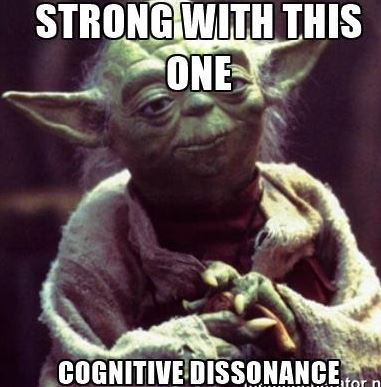“Many of the truths that we cling to depend on our point of view.” – Obi-Wan Kenobi “Episode VI: Return of the Jedi”.
The Flatlanders
In the satirical novel Flatlanders by Edwin Abbot we learn how a Flatlander perceives reality in two dimensions and how he reacts to a third dimension when presented to him. To a Flatlander there is no height or depth to anything, everything exists in planar view. It is like imagining what it would be like to be a stick figure on a piece of paper going about its day, having breakfast, kissing the stick wife and stick kids good bye as it leaves to go to work on a two dimensional cart. To the Flatlanders the proposition of a third dimension was preposterous and dangerous. The reality of a Flatlander is hard to grasp as it would be hard for a fish to imagine a life on dry land.
“Reality is merely an illusion, albeit a very persistent one” – Albert Einstein
Our World
What we hold true is largely derived from our cultural conditioning and our upbringing. We were not born with the ideas, attitudes and prejudices that we have. We acquired them along the way through experience and our interaction with society. Imagine the way a slum dweller in Calcutta views the world in comparison to an affluent person living in southern California. Even in Southern California the views of a Mexican itinerant farm hand on politics, gender, race and economic issues are likely going to differ widely to an affluent American living in Hollywood. The perceptions of the two social classes differ because their experience of reality is different.
The divisions that exist in the world based on cultural, ethnic, national, racial, gender and political lines are all illusionary. They exist as conditioned ideas in peoples minds. Alternatives do exist and no one has to believe anything, we all have a choice in what we believe and do not believe. Fundamentally people are the same. They want the same things, to live in peace and security, to raise their children and to provide for their needs.
No one is born “bad” and no one is intrinsically “evil”. No one is inherently “right” or wrong”. People may suffer mental illnesses or personality disorders that are expressed in maladaptive, sociopathic or psychotic behaviors. That does not make them bad or evil. Behavior may be perceived as “bad or evil”. There is no such thing as “Black and White” in a world that is millions of shades of gray.
“Dogmas–religious, political, scientific–arise out of erroneous belief that thought can encapsulate reality or truth. Dogmas are collective conceptual prisons. And the strange thing is that people love their prison cells because they give them a sense of security and a false sense of “I know.” – Eckhart Tolle
Then what it True?
Reality Bites
Imagine how life must appear to the “hopeless” drug addict or alcoholic. Would it appear hopeful and optimistic? Or does it appear bleak and a constant struggle? Do issues that concern sober and clean people they know concern them? What is true to them, what appears real?
I recently listened to a radio interview with Chester Bennington the front man for Linkin Park. Chester committed suicide last week; he suffered depression and tried to resolve his battle with drugs and alcohol. In the interview Chester related how he perceived the world, the constant struggle he had with that perception while being aware that it is “all in his mind”. The tragedy is that Chester knew he had a problem and he articulated quite clearly what he needed to do to resolve his perception of the world and silence his mind.
Chester Bennington defined his truth and he articulated his reality. How we perceive that reality, the “world” he speaks of will differ from one person to the next. That is why when we hear stories in meetings we look to relate to the individual. Their story may be like many others but it is still unique, they are relating their personal reality. Many people outside of recovery would not be able to fathom it, they would be like Flatlanders trying to understate “Sphere World”. The interview with Chester Bennington can be seen here. I encourage that you watch it.
In active alcoholism our perception of reality is skewed. In the recent blog entries on Cognitive Dissonance and Motivational Needs we looked at how we struggle with reality and use maladaptive behaviours to facilitate our addiction. We explored some of the strategies we can use to bring ourselves back on course. Chester Bennington provides another example that how we perceive other people, even the rich and famous is often not the way they perceive themselves. To be human is to have vulnerabilities, weaknesses and fears. How we deal with our perpetual struggle for self actualization and transcendence is a battle that largely happens within our own minds.
“We suffer more in imagination than in reality.” – Seneca
The Illusion and the Truth
On Tatooine Obi-Wan Kenobi had revealed to Luke Skywalker that Darth Vader had killed his father, Anakin. Later on Dagobah, Luke knows the truth about his father and asks the ethereal Obi-Wan Kenobi why he had lied to him. As far as Obi-Wan Kenobi was concerned, Anakin died even before they fought on Mustafa. By falling to the dark side Anakin no longer existed, there was only a pale shadow in the form of Darth Vader.
This was a truth to Obi-Wan Kenobi, it was how he perceived reality. Despite what Luke Skywalker thought, Obi-Wan Kenobi had never lied to him but he had not told him the entire story either. Anakin was a prisoner of his own perception of reality; being Darth Vader was an expression of a falsehood. Is that not a metaphor for a disease like alcoholism? A pathological denial of the truth.
Luke had to go out and face his own fears and seek his destiny. In doing so he redeemed himself and saved his Father. Luke offered Anakin an alternate reality; the Truth. Free from the illusion that had held him captive as Darth Vader, Anakin was able to overcome Darth Sidious and end his own suffering.
Obi-Wan Kenobi was wrong about Anakin, he was still alive. We are often wrong about others and especially ourselves. Our perception of the truth often deceives us but we choose not to challenge it. We cling to our beliefs even when evidence is presented contrary to our view point. No one likes to admit that they are wrong but the first step in recovery is admission. In order to admit we must first look in the mirror and see things as they truly are. Then we must take Action.
“From here on out, there’s just reality. I think that’s what maturity is: a stoic response to endless reality. But then, what do I know?” – Carrie Fisher











